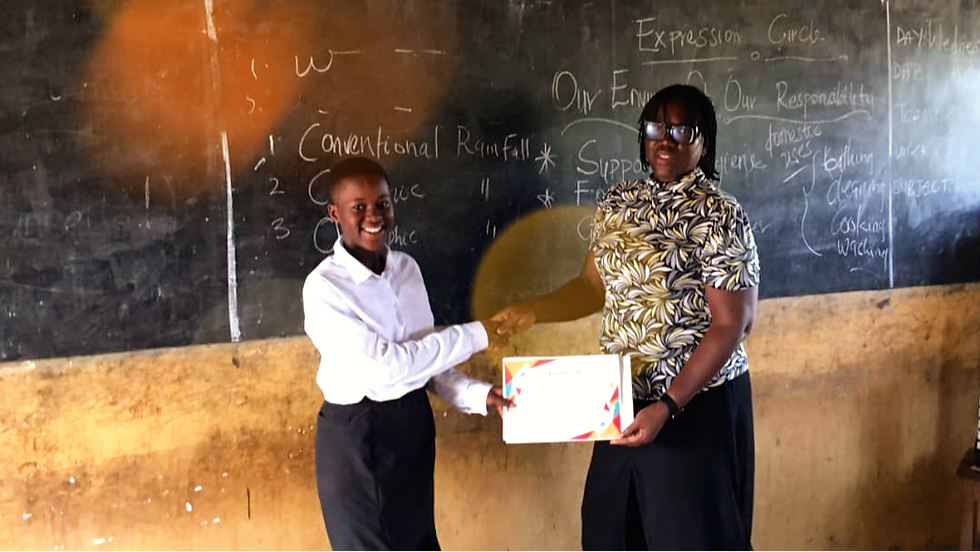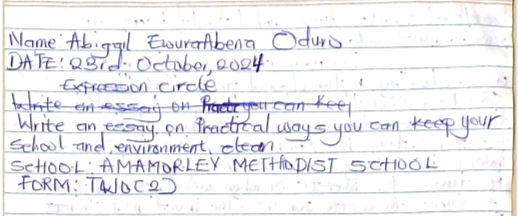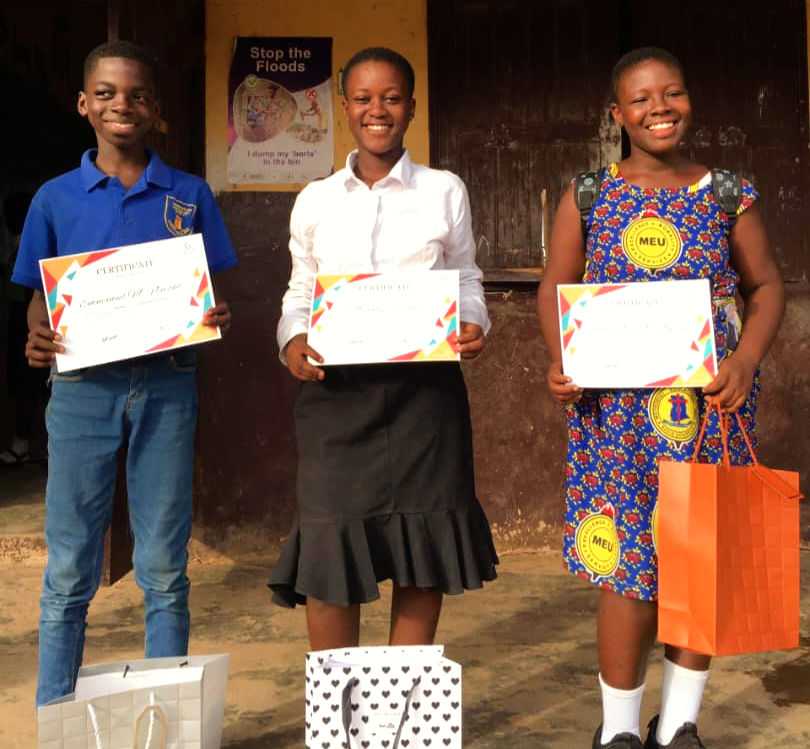Championing a Cleaner School and Environment with Abigail Oduro’s Winning Ideas!
- Outside the Lines FDN
- Nov 16, 2024
- 3 min read
We are thrilled to share the insightful ideas of Abigail Oduro, a talented Basic 8 student who won our recent Awuletey essay competition! Abigail’s essay, “Practical Ways You and I Can Keep the Environment Clean”, highlights actionable steps students and communities can take to promote a cleaner, healthier environment. Abigail has captured both the urgency and the practical strategies needed to protect our planet. Her inspiring ideas reminds us that each one of us has a role in keeping our surroundings clean.

Abigail begins by defining the environment as everything around us, both natural and man-made. She explains that while humans were entrusted to care of the earth, many have drifted from that responsibility. When we don’t properly dispose of waste, we risk polluting our surroundings and harming our health. According to Abigail, the time has come to adopt practical, daily habits to reduce waste and make the earth a safer place.

Abigail outlines several practical ways to keep the environment clean, both in schools and at home:
1. Separating Waste Properly: One of the simplest yet impactful ways to manage waste is by sorting them into categories. By separating plastics, paper, organic waste, and rubber, we can more effectively recycle and reuse materials. In Ghana, where these types of waste are common, this approach would drastically reduce pollution.
2. Reusing Plastics: Items like plastic bottles, bowls, and spoons don’t have to be thrown away after one use. These items can be recycled and repurposed, reducing the burden on the environment. By reusing plastics, we reduce the demand for new resources, helping to reduce pollution and waste.
3. Repurposing Paper Waste: Abigail highlights the issue of paper waste at school. Instead of discarding paper, she suggests creating paper envelopes and bags as alternatives to polythene bags, which don’t decay easily and contribute to widespread waste issues. Her idea demonstrates how resourceful students can be with items that would otherwise be wasted.
4. Recycling Pure Water Sachets: Pure water sachets are a common source of waste in Ghana. Rather than throwing these away, Abigail suggests using them as small sacks for nursing plants. This eco-friendly alternative to purchasing new plant sacks promotes both recycling and gardening.
5. Utilizing Organic Waste: Fruit and vegetable scraps, rather than being discarded, can be used as compost. This organic matter is packed with nutrients that benefit plant growth and enrich the soil. By turning food waste into fertilizer, we can support sustainable farming practices and reduce the volume of waste sent to landfills.
6. Planting More Trees: Trees are crucial for absorbing carbon dioxide and protecting the ozone layer. Abigail emphasizes the importance of planting trees in schools and communities to improve air quality and combat climate change.
One of Abigail’s most powerful messages is the importance of educating others about the impact of environmental destruction. She believes that if more people understand the harm caused by pollution, they will be inspired to act responsibly. Through education, we can empower communities to recycle, reuse, and care for our planet, promoting a future where all generations can enjoy a healthy earth.

Abigail’s essay is a powerful call to action for all of us. At Outside the Lines, we believe that children like her are the key to lasting environmental change. Her ideas show us that when we each take small steps whether by recycling, reusing, or planting trees we can collectively create a cleaner, healthier world.

We are proud to celebrate Abigail Oduro’s winning entry, as well as the insightful essays from Petra Aya Mensah and Emmanuel M. Nimako on ways we can keep our schools and environment clean. We hope their messages will inspire others to take action. Let’s work together for a sustainable future, one step at a time.



Comments